Tweaked: Suzuki PTR GSX-S1000 KATANA video review
Just over 12-months ago Suzuki Australia launched the new KATANA here, holding a two day press event on the Gold Coast. You can read our review here or watch our video here. At the time, Suzuki promised to build a hottie and send it our way. Check out our video…
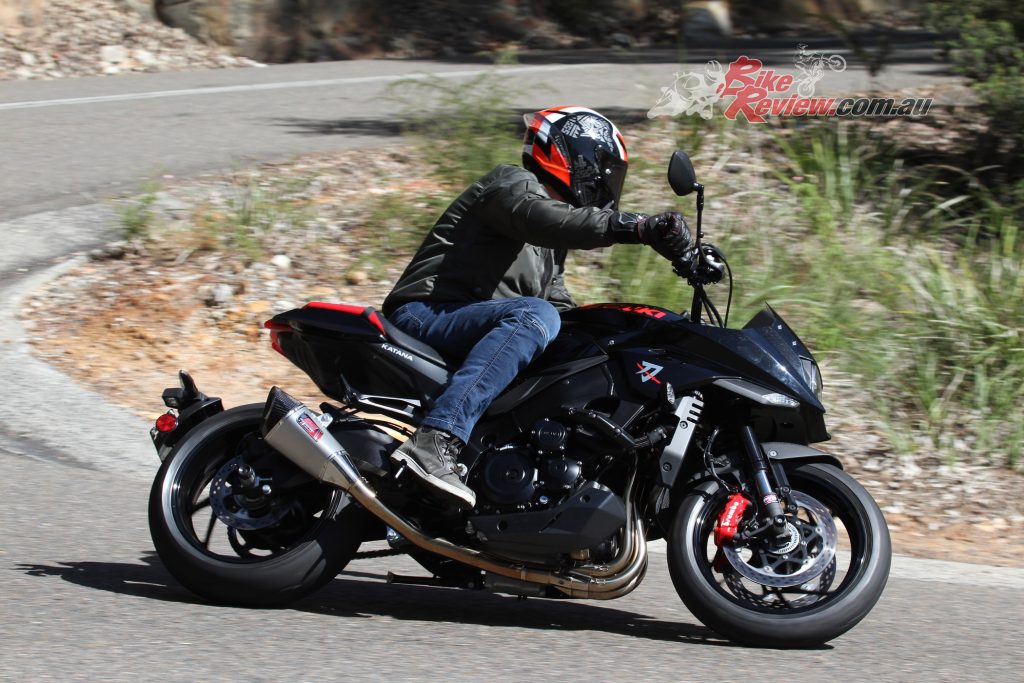
Suzuki used PTR to do a mild tune on the KATANA, adding a pipe, suspension, tyres, QS and remapping to net a 20hp gain and a meaty sound! That Yoshi howls. We enjoyed the bike over April and May. Have a listen to it in the video…
Suzuki KATANA highlights
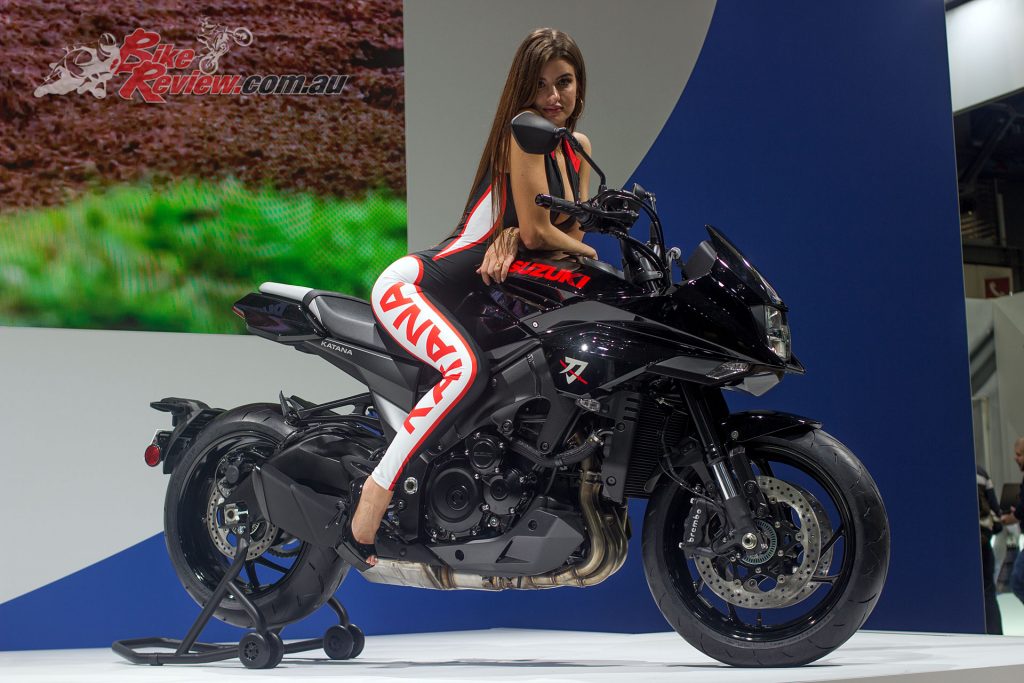
The KATANA was unveiled at EICMA 2018… Then launch to the Australian motorcycle press in August 2019. @elena.berlato doesn’t come with the bike sadly but her shots on the KAT went viral on social media.
Styling
- Inspired by the original Katana, but a totally modern look
- Sharp front end and clean rear end
- Distinctive new LED headlight and LED front position lights
- Satellite rear fender extending from the swingarm
- Red logo decal inherited from the legendary 1980s KATANA
- Black upswept muffler
Ergonomics
- Upright riding position
- Raised handlebars
- Two-tone seat designed for comfort and looks
- 825mm seat height
- Slim where the tank meets the seat
Engine
- 999cc liquid-cooled inline-four
- K5 GSX-R1000 derived highly modified long-stroke engine, 73.4mm bore and 59.0mm stroke, as found on current GSX-S1000 models
- Maximum output 110kW (150PS)@10,000rpm
- Maximum torque 108NM@9500rpm
- Suzuki Dual Throttle Valve (SDTV) system
- Suzuki Exhaust Tuning (SET) system
- Custom 4-2-1 exhaust system
- Lightweight, compact and rigid aluminium frame
- Lightweight braced aluminium swingarm
- Fully adjustable 43mm KYB inverted front forks
- Radial mount four-piston Brembo front brake calipers
Electronics
- 3-mode traction control (1, 2, 3 and off)
- Low RPM Assist (lifts rpm 500rpm on takeoff)
- Suzuki Easy Start System
- Back-torque limiting (slipper) clutch
- Dunlop tires with custom-designed pattern
- Antilock Braking System (ABS) standard
- Full-LCD instrumentation
Accessories
- Red Brembo calipers
- Axle sliders
- Heated grips
- Carbon-fibre engine covers
- Coloured embossed seat
- Tinted screen
- Various decals and bodywork protection stickers
2020 Suzuki KATANA tech
The KATANA powerplant has been refined and re-worked from the mighty K5 and GSX-S1000 engine to compliment the new nakedbike. Basically, the powerplant that got such a cult following, is designed to give more acceleration and throttle response. The engine was chosen as it has a long stroke for better mid range than the current GSX-R engine, because of its crank and gearbox layout permitting the desired frame design, and due to its proven reliability through multiple championships.
Bore and stroke remains 73.4 x 59mm, allowing for a compact combustion chamber and flat top pistons. This gives a broad spread of power throughout the rev range. The engine dimensions remain the same with cylinder pitch at 80mm and the same horizontally split crankcases and crank/input/output shaft layout. Cylinder angle is 23 degrees. There are some new parts – such as FEM (Finite Element Method) pistons that are three per cent lighter, helping with acceleration. The new camshafts are designed to optimize valve timing for the street, whereas the GSX-R1000 was tuned for the track. Iridium spark plugs heighten spark strength and therefore combustion efficiency, contributing to higher power, more linear throttle response, easier start-up and a more stable idle.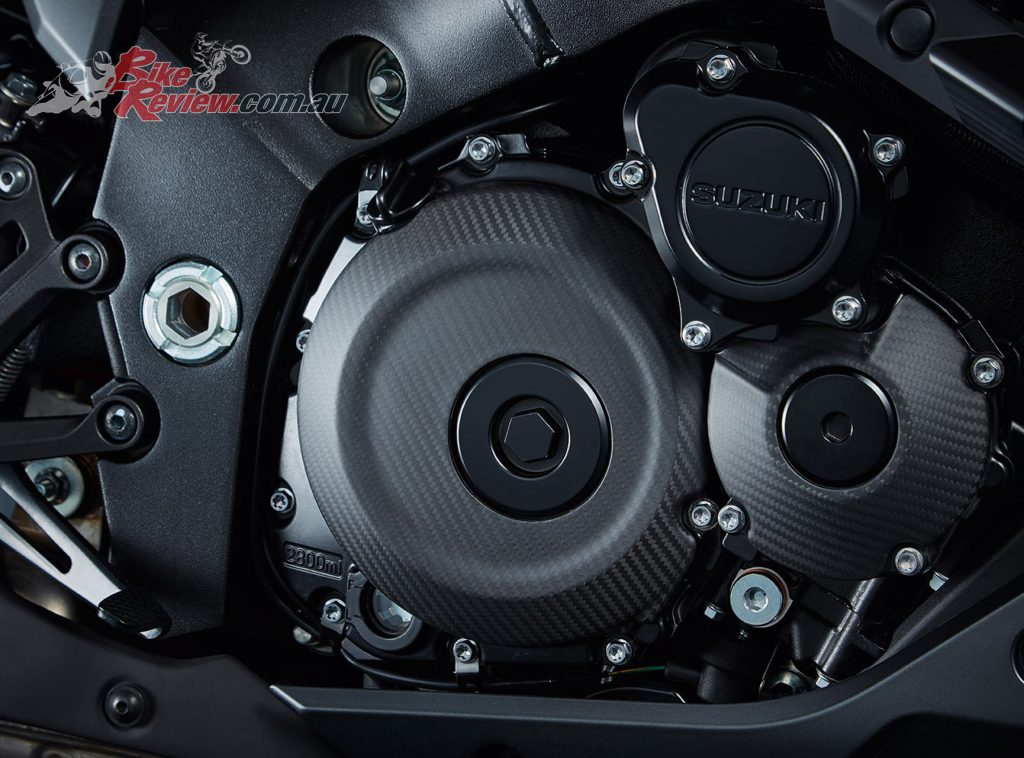
The cylinders are SCEM plated (Suzuki Composite Electrochemical Material) to improve heat transfer and durability. The compression ratio is 12.2:1 versus the GSX-R K5 ratio of 12.5:1 over the previous model’s (K4) 12.0:1. Valve size and port shape is unchanged.
The gearbox remains the same and the back torque limiting clutch is also retained.
44mm throttle-bodies are used, utilising the SDTV (Suzuki Dual Throttle Valve) system, where the secondary valves are servo controlled. The injectors are 10-hole long-nose units. The airbox is all-new, as is the exhaust system, which features equaliser pipes between cylinders one and four and, two and three. The catalytic converter is at the header collector box, which then joins the large volume exhaust chamber. The muffler features a flapper valve, or SET (Suzuki Exhaust Tuning) system. Throttle position, gear position and engine rpm determine the opening of the servomotor driven valve, controlling pressure waves for optimum performance.
A highly efficient radiator keeps the engine cool, as does a newly designed liquid-cooled oil cooler.
The chassis design brief was it had to be good in city traffic, on highways, rural roads and twisty roads.
This was achieved with an all-new frame that is lighter than the GSX-R1000 frame. The frame was designed with FEM analysis technology and the main rail forms a straight line from the steering head to the swingarm pivot. The actual swingarm is straight off the 2015 GSX-R1000. Rake and trail figures are 25 and 100mm while seat height is 825mm.
The forks are KYB fully adjustable 43mm inverted units with 120mm of stroke, while the shock is a link type unit with a 63mm stroke. It is adjustable for preload and rebound only.
The Brembo four-piston monoblock calipers have 32mm pistons and squeeze 310mm rotors. The calipers are the same as used on the current GSX-R1000. ABS is by Bosch.
The wheels are six-spoke cast alloy units manufactured by TRP. The standard tyre is the Dunlop Sportmax Roadsport 2 with a 120/70 – 17(f) and 190/50 – 17(r).
There is a basic non IMU traction and ABS system. There are three traction control settings to choose from as well as ‘Off’. It’s a very easy system that is operated by a left ‘bar toggle switch, with the level displayed on the dash.The TC system monitors front and rear wheel speeds, throttle position, crank position and gear position 250 times per second and quickly reduces power output when spin at the rear wheel is detected.
The ABS control unit is supplied by Bosch and weighs just 640 grams. It monitors front and rear wheel speed 50-times per wheel rotation and matches stopping power to available traction. I tested the system purposely in many conditions and found it good enough but there is no cornering ABS.
The KATANA tribute LCD instrument cluster is packed with features. It includes speedo, tacho, odo, dual trip meters, gear position, water temperature, range, fuel consumption average and instant, traction control mode and fuel gauge – plus a clock.The KATANA also features a one-press starter button (no need to hold it down) and you don’t have to hold the clutch in to start the bike.
2020 Suzuki PTR KATANA Specifications
PRICING: $18,990 RRP Ride Away (stock)
CLAIMED POWER: 160hp at wheel
CLAIMED TORQUE: 108Nm@9500rpm
WET WEIGHT: 205kg
FUEL CAPACITY: 12L
ENGINE: Liquid-cooled, four-stroke, forward-inclined parallel four-cylinder, four-valve per cylinder, DOHC, 73.4 x 59mm bore x stroke, 999cc, 12.1:1 compression, 44mm throttle-bodies, Suzuki Exhaust Tuning (SET), Yoshimure R11 exhaust system, Woolich Racing Log Box Pro, quickshifter, PTR remap.
GEARBOX: Constant mesh, six-speed
CLUTCH: Back-torque limiter wet multi-plate
CHASSIS: FEM designed alloy frame, alloy braced swingarm
Rake: 25 degrees, Trail: 100mm
SUSPENSION: 43mm KYB fully adjustable telescopic forks, Nitron 22mm cartridges, Nitron rear shock, link type single shock, fully adjustable
BRAKES: Bosch ABS system, Brembo radial-mount four-piston calipers, 310mm rotors, 220mm rear rotor with Nissin caliper, Nissin conventional master-cylinder
WHEELS & TYRES: Cast alloy six-spoke 17in, Pirelli Supercorsa SP 120/70-17in (f), 190/50-17(r)
DIMENSIONS:
Seat height: 825mm
Overall height: 1110mm
Overall length: 2125mm
Wheelbase: 1460mm
INSTRUMENTS: Multi-function LCD display
PTR Suzuki KATANA Gallery
The Verdict | Tweaked: Suzuki PTR GSX-S1000 KATANA video review


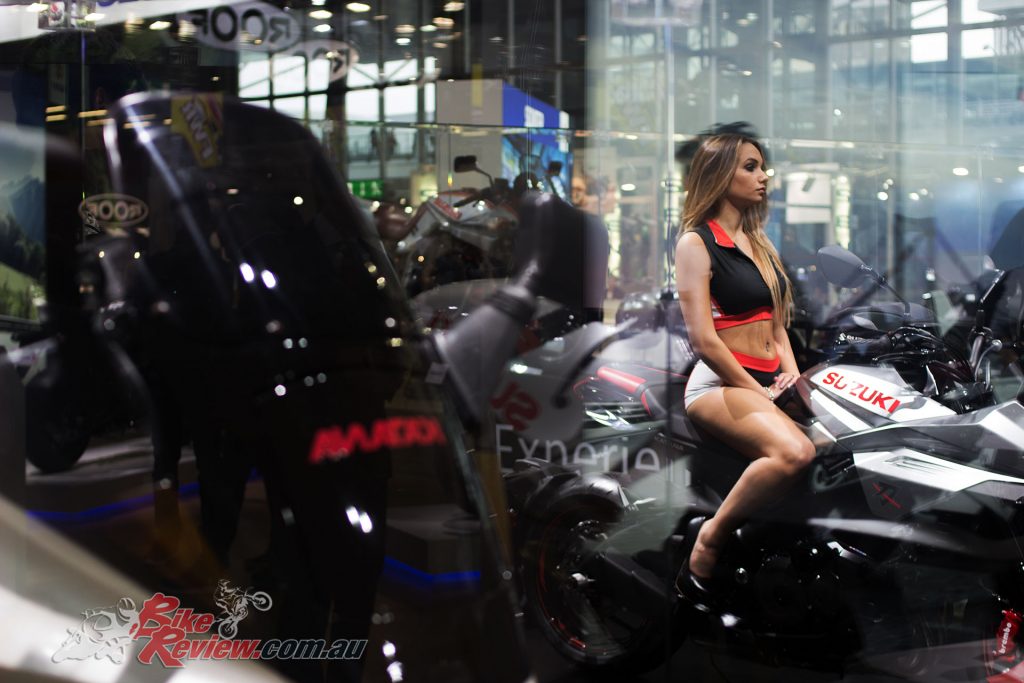
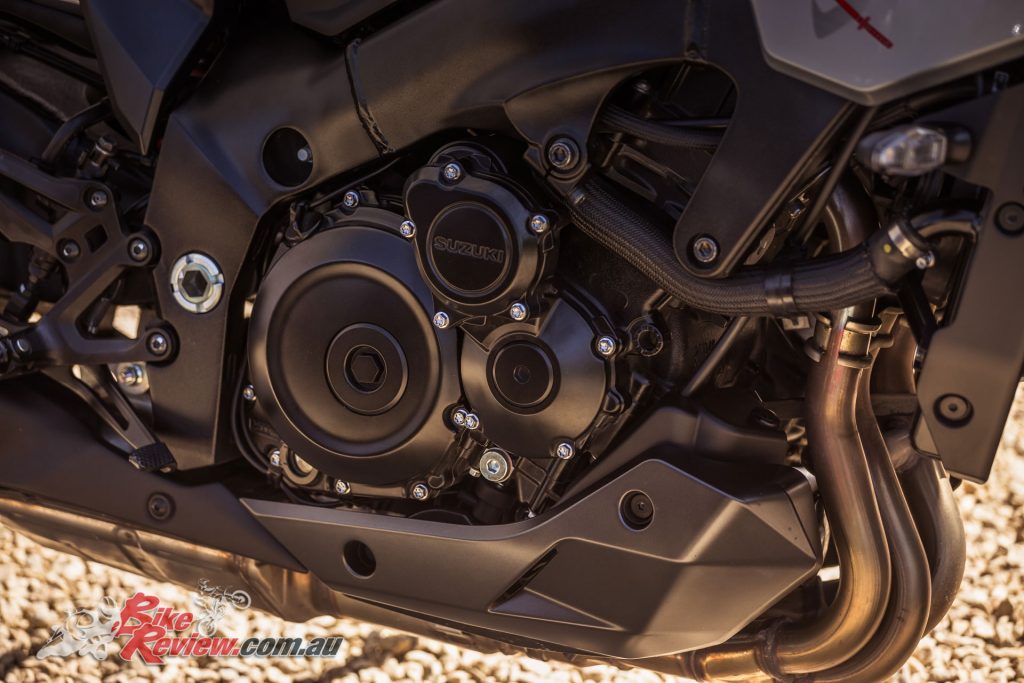

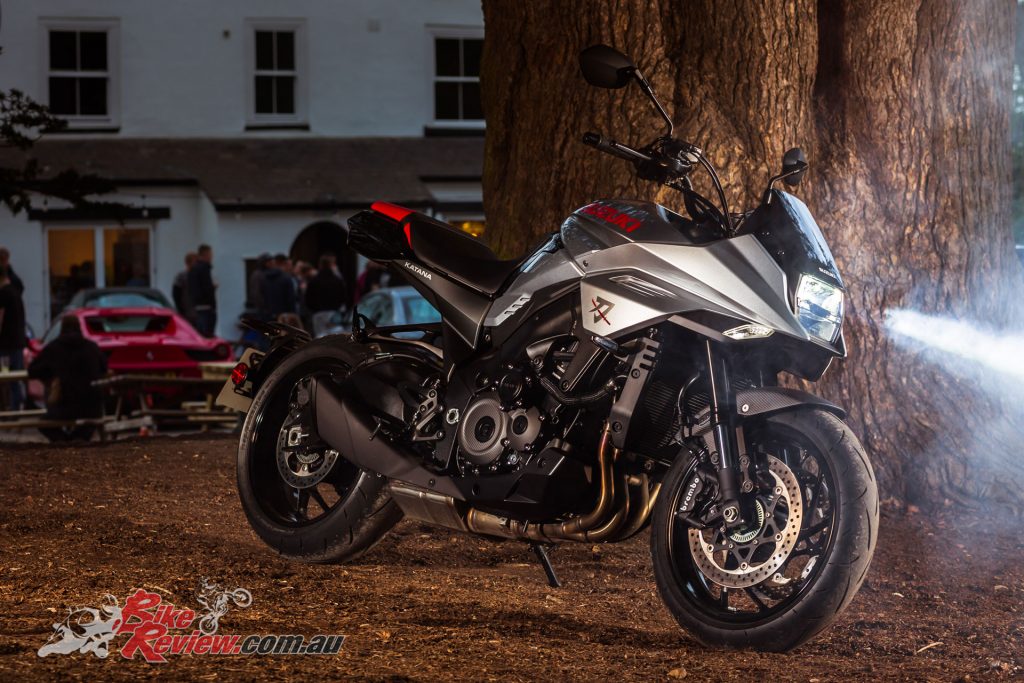
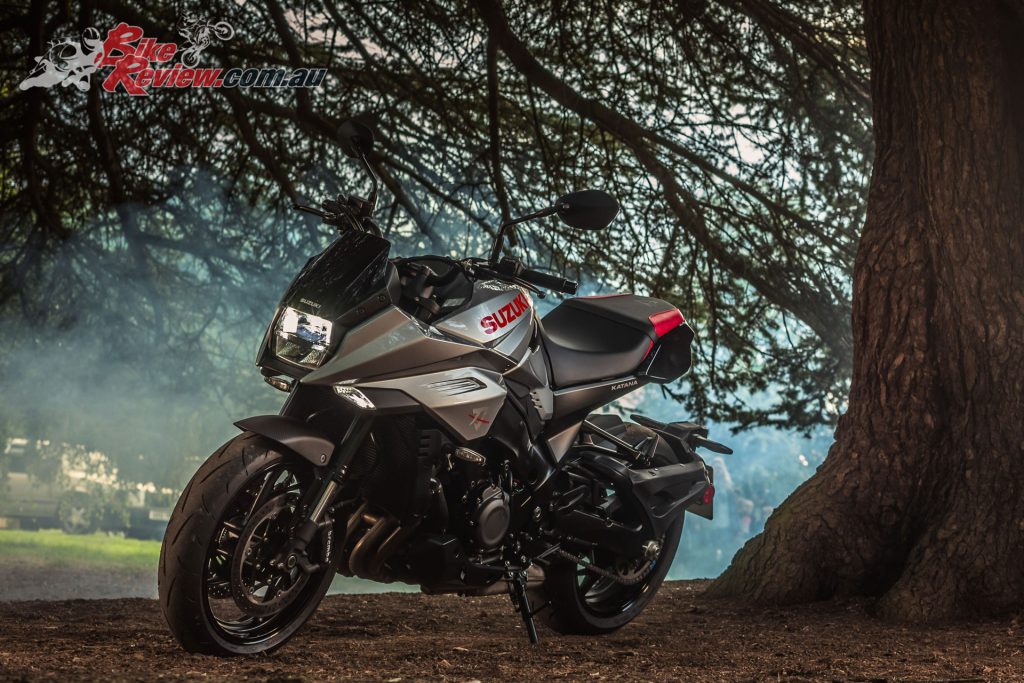
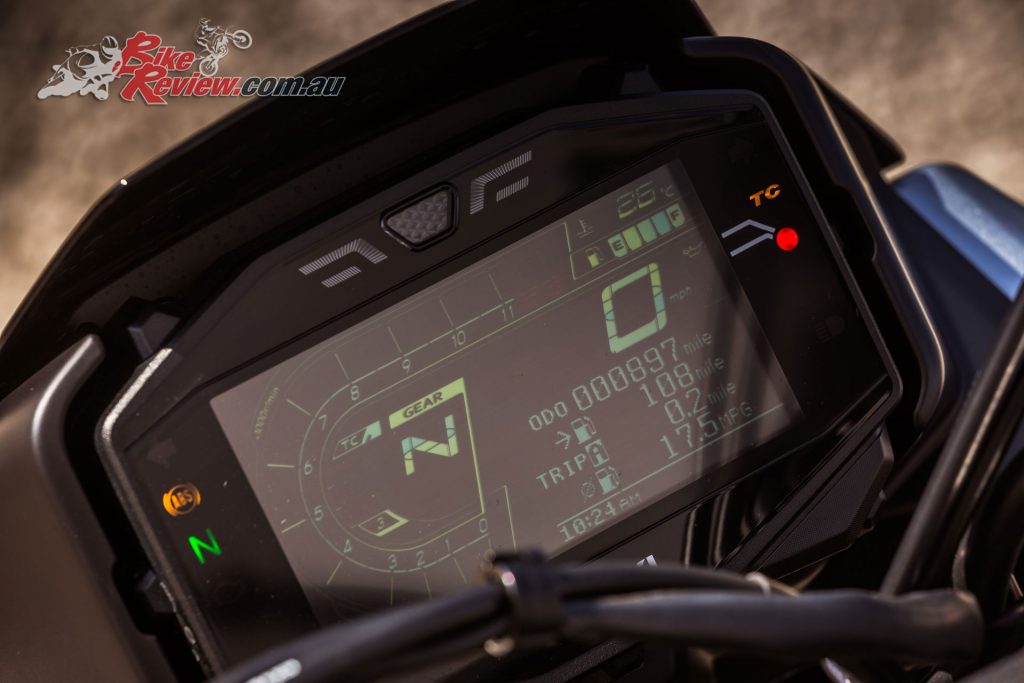
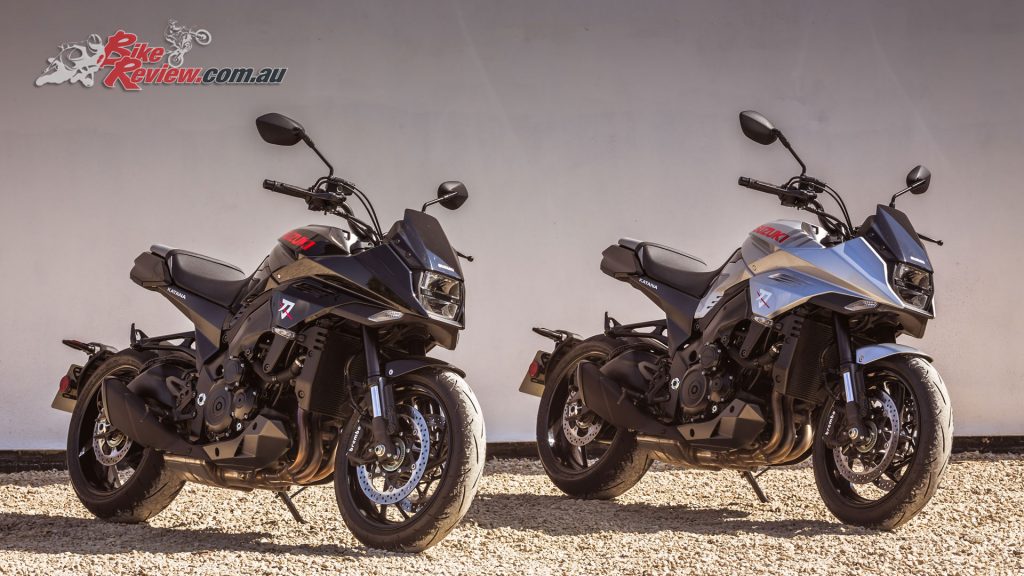
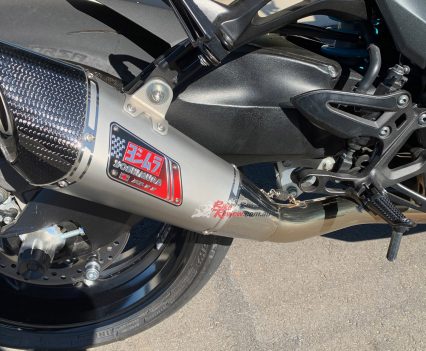
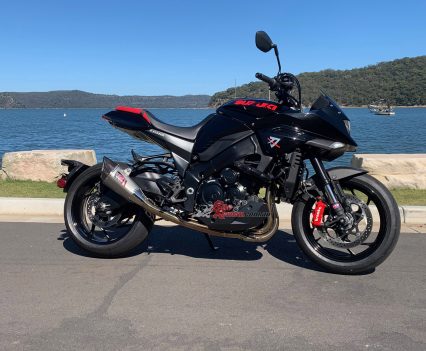
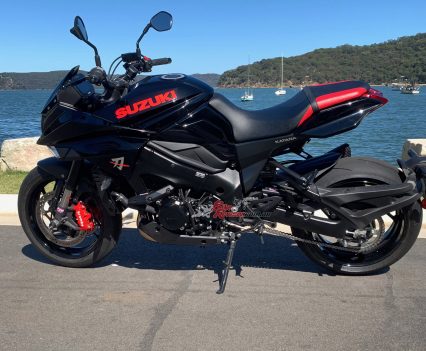
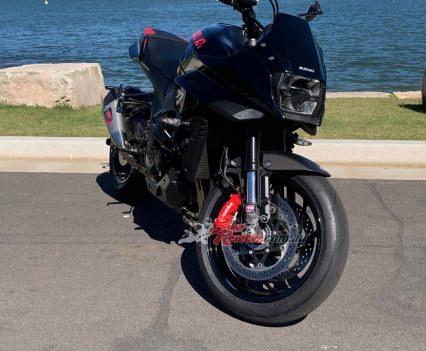
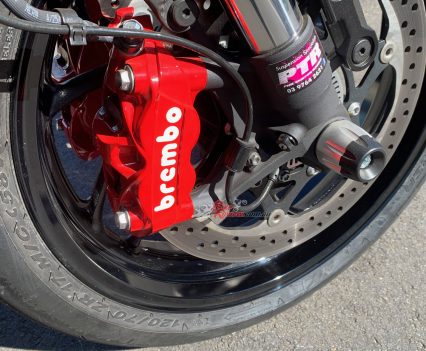
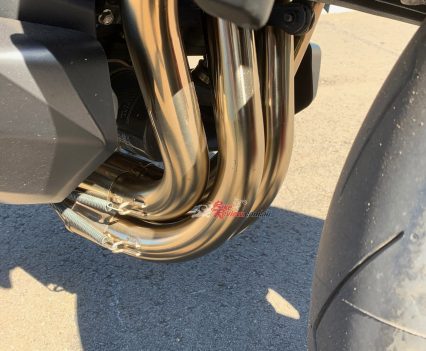
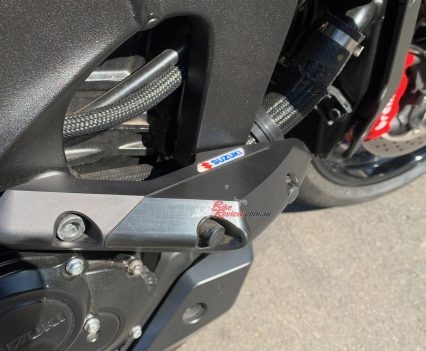
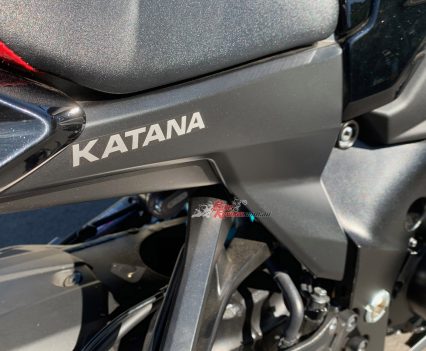
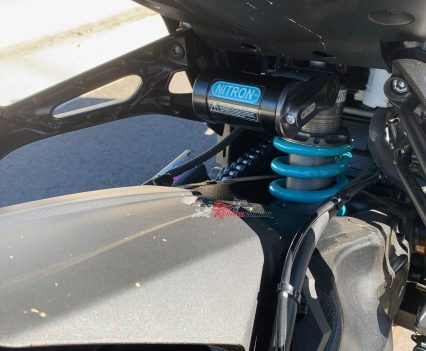
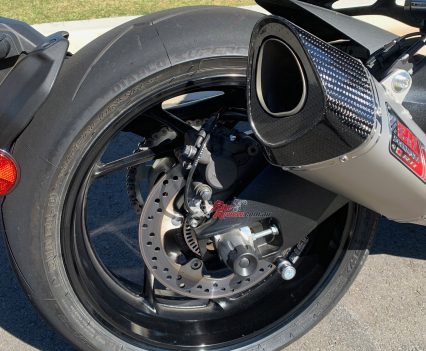
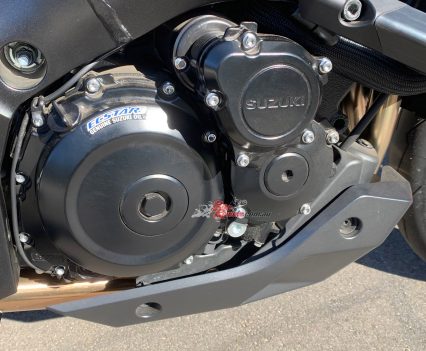
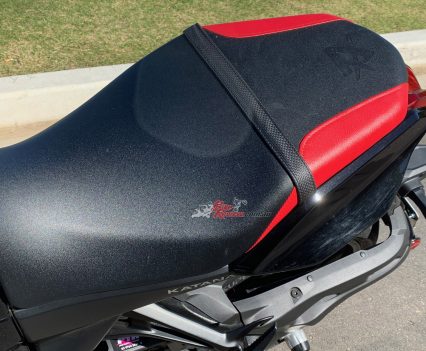
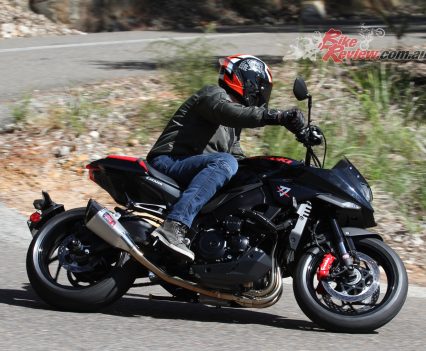
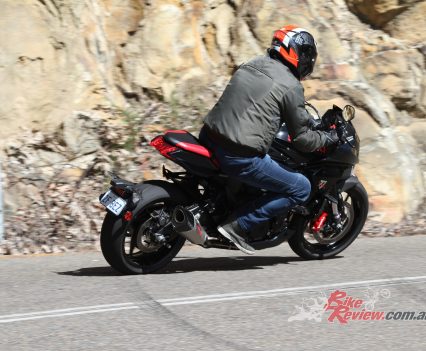
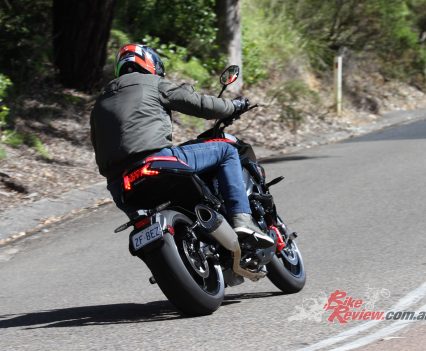
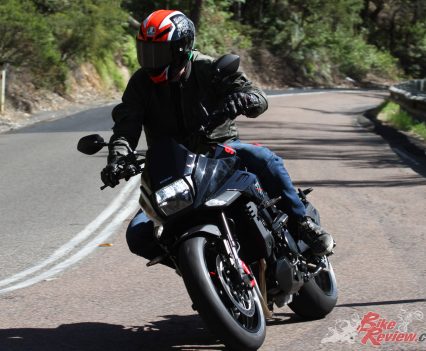
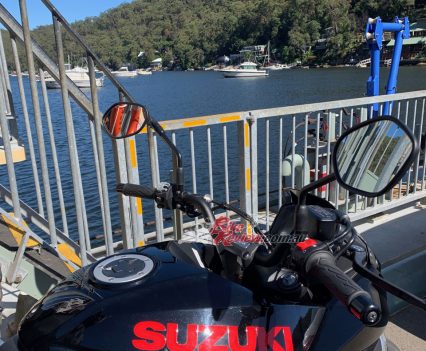
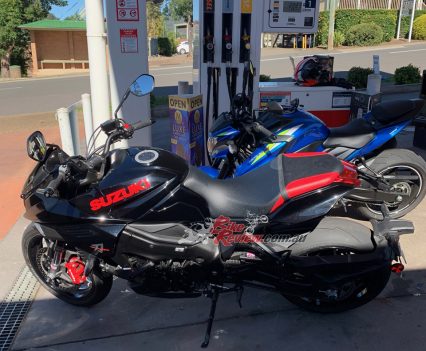
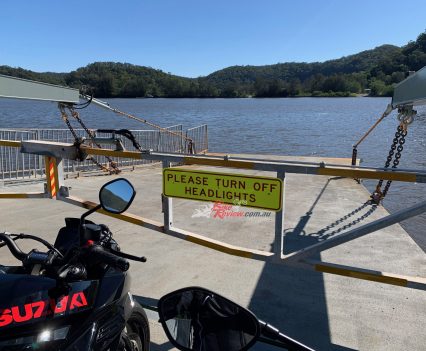
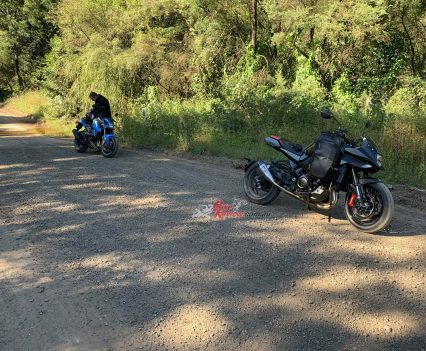
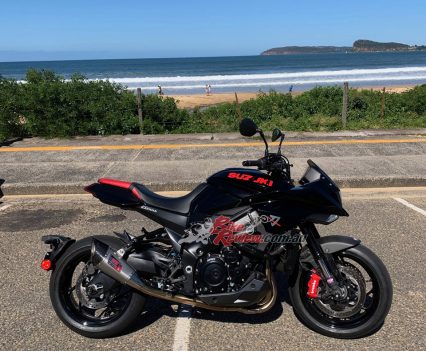

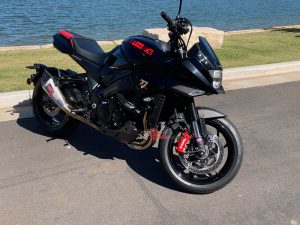
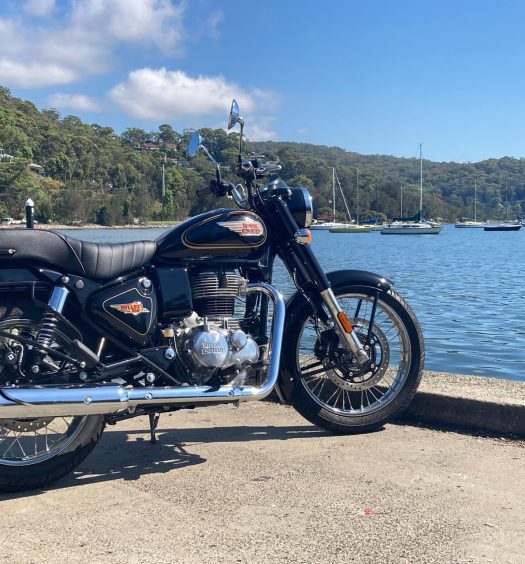
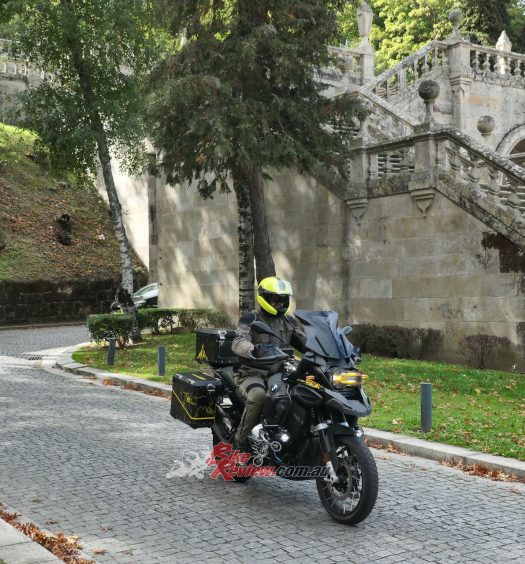
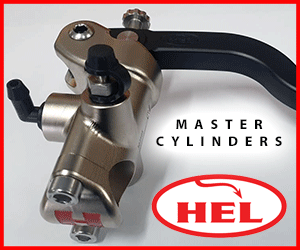













September 11, 2020
I love how these bikes look and handle, but the price definitely needs to come down. Hard to justify one of these, when the GSX-S1000 is effectively the same bike for a few thousand less.